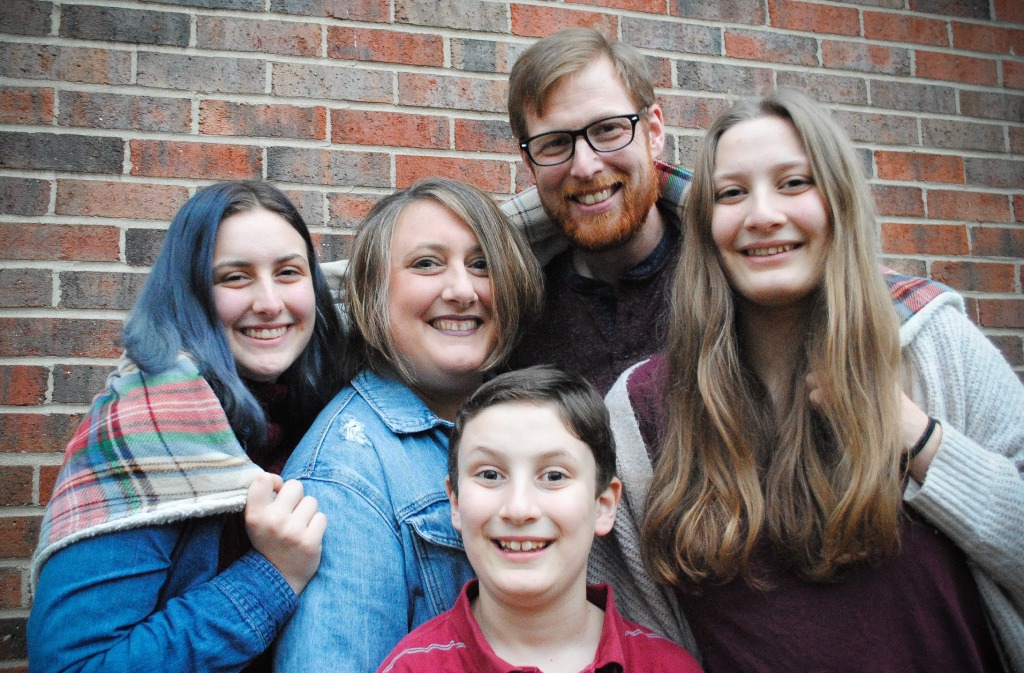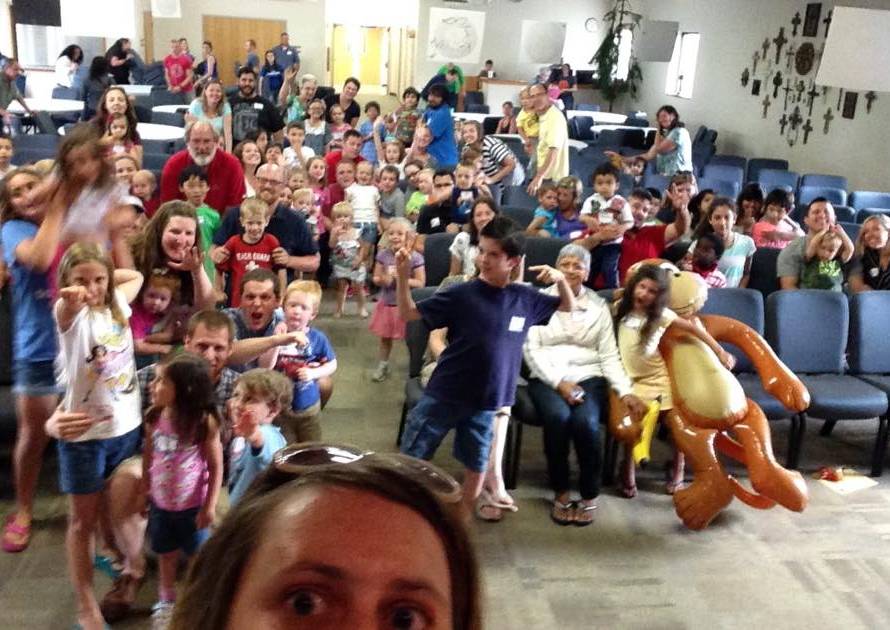It’s been a while since I blogged. Part of that was intentional; I was away for a class and chose to put my focus there for a week. Part of it was simply a feeling of being completely and utterly overwhelmed by the state of this world and, more specifically, my interactions with Millennials and Gen Z-ers who are deconstructing their faith.
If you’ve followed my blog for any length of time, you know that I am passionate about connecting generations in meaningful relationships with the context of the church and the home. And you also know that one of the motivating factors for this particular passion is the diminishing numbers of the above generations represented in our church communities.
But here is what I am discovering in my many conversations with those who are deconstructing their faith and some choosing to leave the church as a result; some, if not most, of these individuals are not leaving because they weren’t taught the Bible or regularly attended youth group or even engaged with the larger church community. Many not only grew up faithfully attending church but they served in positions like youth volunteer/leader or worship leader or had the pedigree of pastor’s kid or missionary family or seminary student.
These were the ones we never thought would leave; in fact, these were the ones we thought would lead.
So what happened?
I have heard and continue to hear the same story: We were not wanted.
And it goes like this:
“As I grew older, I began to see people in the church say and do things that didn’t seem to line up with what I had been taught by those same people about God, about His love, about Christianity, and about the Bible. As I studied the Bible more and began to ask questions, people began to pull away from me. I was warned about “falling away” and “losing my faith” but no one seemed to want to actually sit down and answer my questions. When I spoke up about what I was seeing and reading and believing on social media, my Christian friends turned against me. Some of the things said to me were hateful, beyond unkind. But…. my non-Christian friends were the ones who stood up for me. They listened to me. I could ask my questions, express my doubt, call out the inconsistencies and search for answers and they were never rude to me or questioned my faith. I still believe in Jesus but I don’t want to be a part of the church. They caused me so much hurt, trauma, and despair that I would rather not associate with people who say they love Jesus but act like that.”
Obviously, this isn’t a word-for-word conversation that I’ve had with someone but it is a general compilation of what so many are experiencing. Not one person I’ve interacted with set out with the goal of leaving the church; they simply had some serious questions and concerns. And before our defenses rise up and begin to defend why we “can’t compromise” and we must “resist the false prophet” and all of that, pause for one second and just hear what is being said.
These are not nameless, faceless people. These are children who grew up in our churches, sat in our Sunday School classes, and sang our songs. They memorized Bible verses and attended our VBS. They volunteered for the mission trip and led worship from the front of the congregation. They are Josiah and Sarah and Madison and Luke and all the other names that popped into your mind as you read.
When I talk about connecting generations in meaningful relationships for the purpose of discipleship, it’s not so that we can download information about our faith into an empty, waiting vessel and create clones of ourselves. True discipleship doesn’t make someone look like me; it leads someone to follow Jesus and He does the work of making all of us look like Him (2 Cor. 3:18). It’s not so the older generations can simply reprove, correct, and instruct the next generations (We’ve got Scripture for that, 2 Tim. 3:16); it’s so that we can mutually learn from one another and together grow into Christ who is our Head (Eph. 4:15).
Discipleship at home and in the church must leave room for the hard conversations without the hard line rejection. Unity in Christ is not the same as uniformity in our culture, doctrine and worldview.
Tweet
But as long as we make it that, the story above is going to continue to be experienced over and over again on repeat. There are loving and gracious ways for us to disagree about non-essentials without excluding someone from our community.
If our role, right now, today, is to work with children, youth, and families in a ministry context, we must meet this challenge head on by creating safe spaces for doubt, discouragement and disbelief as individuals “work out their salvation” (Phil. 2:12) without severing the ties of community and grace. And we must keep in the forefront that while we are called to make disciples of all people, young and old, we are not called to keep our attendance numbers in church or denomination intact. We’re called to share the love and light of Christ; to love God and to love people.
Cultivate a culture of embrace rather than exclusion.
And if we see the tendency in ourselves to shut down, shut out, and defend whenever a question is asked, a doubt is expressed, a different way of interpreting Scripture is shared, or an opposing political, social, or theological view is presented, let us remember these are the children we’ve poured Christ into and take time to listen, to love, and to learn together.
These are not nameless, faithless, faceless “others.” We can’t lump them into groups and reject them. They are ours and they won’t stay where they are not wanted.
Ready to Start, Not Sure Where?
ReFocus Ministry is pleased to present a four-part webinar series on generational discipleship and connection for churches interested in exploring intergenerational ministry both in their church and in their homes. Each session will focus on a unique aspect of gathering generations together, both the challenges and opportunities, as well as practical tips to begin implementing now during this time away from regular church gatherings.
Sessions can be attended individually or all four can be attended as a series.
Session 1 – ReConnect. This first session of the webinar focuses on defining generations, generation gap, and the need for generational discipleship in your church. This is the “What” behind generational discipleship.
Session 2 – ReGenerate. This session focuses on the the research, the reasons, and the heart behind connecting generations from both a secular and spiritual viewpoint. This is the “Why” behind generational discipleship.
Session 3 – ReProduce. This session offers practical tips, strategies, and ideas to being connecting generations in your faith community and in homes in meaningful, lasting, life-changing ways. This is the “How” behind generational discipleship.
Session 4 – ReLease. It’s time to go and do! This session will provide a discussion and debrief around the questions, “What? So What? Now What?” and give you an starting point for incorporating generational discipleship as a meaningful part of your faith community. This is the “Who” behind generational discipleship at your church and in your home!
For More Information about how you and your church can participate in this webinar experience, fill out the Contact Form Below with “ReConnect” as your subject.
For more information about…
- Kids in Worship
- Determining which Type of Family Ministry model works best for your church
- Discipleship in Intergenerational community
- Encouraging the continued conversation through Practical Discipleship at Home
- Seminars, Workshops, Coaching
Check out to ReFocus Ministry or “like” our Facebook page. Join our conversation at theReFocus Family and Intergen Ministry group on Facebook.
About this Blog
Refocus Ministry was started by Christina Embree, wife to Pastor Luke, mom to three wonderful kids, and church planter at Plowshares BIC. She also serves as the Minister of Generational Discipleship with the Great Lakes Conference of the Brethren in Christ.
With years of experience in family ministry and children’s ministry, she is passionate about seeing churches partnering with families to encourage faith formation at home and equipping parents to disciple their kids in the faith. She recently graduated with a Masters of Arts in Ministry focusing on Family, Youth and Children’s Ministry at Wesley Seminary, she also blogs at www.refocusministry.org and is a contributing blogger at D6 Family, ChurchLeaders.com, and Seedbed.



